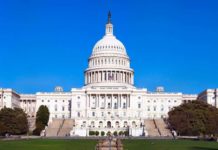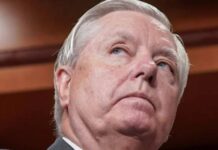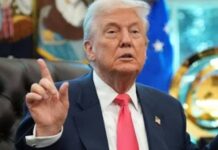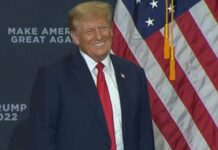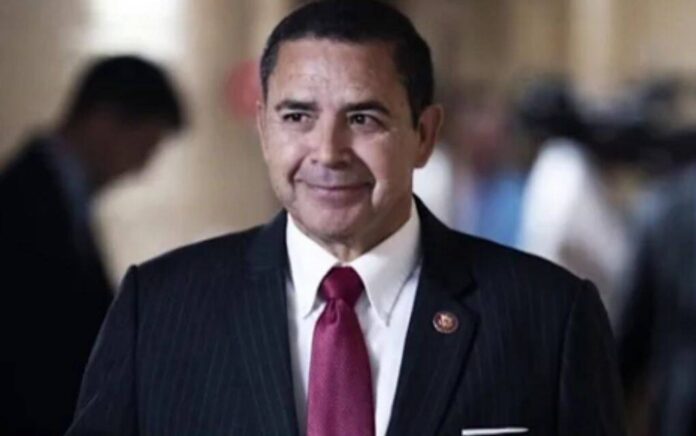
The Left’s meltdown continues. But some Democrats are putting down their arms.
And now a rogue Democrat has admitted that Donald Trump was five steps ahead the entire time.
Trump’s Strategy to Use Tariffs as Leverage for Border and Trade Negotiations
As President-elect Donald Trump prepares for his return to the White House, one of his most discussed proposals is the imposition of tariffs on foreign nations, particularly Mexico, as a means to address critical issues such as immigration and the fentanyl crisis. His plan to use tariffs as a tool of negotiation has sparked debate, but some experts, including Texas Democrat Rep. Henry Cuellar, believe it could be an effective strategy to force foreign governments to the negotiating table.
Rep. Cuellar, who represents Texas’ 28th Congressional District, an area bordering Mexico, weighed in on Trump’s proposed tariffs during an interview on NewsNation. Cuellar, familiar with the intricacies of cross-border trade, pointed out that tariffs could create the leverage needed to compel Mexico to engage in meaningful discussions to solve the complex problems surrounding immigration and drug trafficking. “If it means a 25 percent tariff to potentially fix the border, would you favor that?” he was asked.
Cuellar responded, saying, “Well, let me put it this way: Laredo’s the largest port; we handle 40 percent of all the trade between the U.S. and Mexico. I know this is a way to negotiate, get some leverage. I know that Mexico will come to the table.” His acknowledgment of the economic power Mexico and the U.S. share in trade suggests that tariffs could have a significant impact on the Mexican government’s willingness to negotiate.
He also addressed the risks of a tariff war, noting that “nobody wants a 25 percent tariff on them” and recognizing that Mexico could retaliate with similar measures. However, Cuellar emphasized that the threat of tariffs could be a catalyst for the kind of negotiation needed to address pressing issues like illegal immigration and the flow of fentanyl across the border.
Trump has been vocal about his intention to use tariffs as a leverage point. On Truth Social, he declared that upon his inauguration, he would immediately implement a 25% tariff on all goods entering the United States from both Mexico and Canada. He cited the ongoing crisis of drugs and illegal immigration, stating, “As everyone is aware, thousands of people are pouring through Mexico and Canada, bringing Crime and Drugs at levels never seen before.”
He promised that the tariffs would remain in place until these problems were addressed, particularly the trafficking of fentanyl and the issue of illegal immigration.
Donald Trump appears to be taking a similar approach to the way he handled the funding of NATO. Many countries were not paying their fair share and Donald Trump threatened to pull the United States out of the alliance if the European nations did not actually put up the funding they said they would.
The result? Well the European nations started to improve their funding of the NATO alliance of course. Similarly, Donald Trump seems to be trying to force foreign leaders to come to the negotiating table lest they risk being hit with a strict trade move by Donald Trump.
In his post, Trump said, “Both Mexico and Canada have the absolute right and power to easily solve this long simmering problem,” adding that until they took action, they would face a hefty price for their inaction. The message was clear: tariffs are not just punitive; they are part of a broader strategy to force action on two issues that Trump has consistently prioritized in his political agenda.
Cuellar’s assessment aligns with Trump’s approach, with the Texas congressman suggesting that such economic pressure could push both Mexico and other countries to address the root causes of illegal immigration and the fentanyl crisis. This aligns with Trump’s previous remarks on China, where he also indicated that additional tariffs could be imposed to curb the flow of drugs into the United States.
He had stated, “I have had many talks with China about the massive amounts of drugs, in particular Fentanyl, being sent into the United States – But to no avail.” This threat to impose tariffs on Chinese products is another example of his strategy to use economic tools to address national security issues.
While Trump’s threats of tariffs have garnered support from some quarters, they have also drawn criticism. A Chinese state-run newspaper, China Daily, published an editorial dismissing the idea of additional tariffs on Chinese goods, calling the justification for such tariffs “far-fetched.” The editorial warned that escalating trade wars would harm all parties involved, suggesting that economic tensions could escalate into a broader conflict with negative consequences for both the U.S. and China.
Nonetheless, Trump’s approach to using tariffs as a bargaining chip has drawn attention as a bold, if controversial, tactic. By leveraging trade pressures, Trump aims to force foreign leaders to take stronger action on issues that directly impact the United States. Whether or not this strategy will yield the desired results remains to be seen, but it is clear that Trump is betting that the economic weight of tariffs will be enough to bring foreign nations to the table and produce concrete solutions to some of the U.S.’s most pressing challenges.
The Federalist Wire will keep you updated on any major news from the Trump administration.



